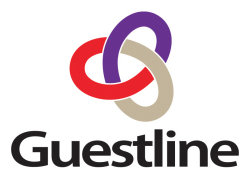 Customer service and one-of-a-kind experience are competitive advantages for boutique hotels. But, what boutique hotels need is a well thought out online marketing strategy. Here are 5 effective online marketing strategies for boutique hotels that can reduce dependency on OTAs and improve direct bookings.
Customer service and one-of-a-kind experience are competitive advantages for boutique hotels. But, what boutique hotels need is a well thought out online marketing strategy. Here are 5 effective online marketing strategies for boutique hotels that can reduce dependency on OTAs and improve direct bookings.
Booking Engines:
Allow direct bookings on your website by offering a simple and quick booking engine.
 Showcase rooms in the most attractive way and also utilize the Facebook booking engine as social media is a strong entity.There is a fine line between attracting a customer to your website and making them book. A booking engine is capable of incorporating all the room details and allows you to upsell your value added services. Your value added services are crucial to winning a direct booking.
Showcase rooms in the most attractive way and also utilize the Facebook booking engine as social media is a strong entity.There is a fine line between attracting a customer to your website and making them book. A booking engine is capable of incorporating all the room details and allows you to upsell your value added services. Your value added services are crucial to winning a direct booking.
Own your Channels:
 Make sure to display consistent rates across all channels. Own your website channel and enable pop-up deals for customers that can offer room upgrades, restaurant offers or free tickets to local attractions. Have your hotel listed on TripConnect to get enough traffic to your website. This way you will spend less on the commissions to the OTAs. Napa River Inn in California recently ran a free dinner offer which popped up immediately when you visit their website. This deal would not have been available on an OTA channel, so this is one of many ways to be able to seen more appealing to a customer when deciding which channel to book through.
Make sure to display consistent rates across all channels. Own your website channel and enable pop-up deals for customers that can offer room upgrades, restaurant offers or free tickets to local attractions. Have your hotel listed on TripConnect to get enough traffic to your website. This way you will spend less on the commissions to the OTAs. Napa River Inn in California recently ran a free dinner offer which popped up immediately when you visit their website. This deal would not have been available on an OTA channel, so this is one of many ways to be able to seen more appealing to a customer when deciding which channel to book through.
Create A Niche: Whilst having a booking engine and offering good deals form a part of the booking conversion, the positioning of your hotel product and what you look like online is what is going to help browsers be attracted to you in the first place. Build an engaging website for your audience and come up with interesting concepts that differentiate you from your competitors.

Be Good Looking: Good looking websites attract a lot of customers. According to a survey, the gallery section of a hotel website attracts 97% customers so having professional photographs will give you great advantage. Apart from hotel pictures, show the attractive locales too. Get a responsive website that will look good on multiple device screens as research by Forbes suggests, “By 2017, 87% of connected device sales will be through smart phones and tablets.”
Be Creative with Your Content: Increase searchability on search engines through blogs, powerful content and videos. Video is the new king of content and a very versatile marketing tool. Videos have viral reach of 77% on Facebook and people remember 50% more from videos compared to 22% with written content.
Hotelogix conducted a webinar on 15 July, 2014 on Online Marketing Strategies for Boutique Hotels. The webinar was held by Nathalie Salas, an acclaimed marketing consultant for start-ups and hospitality clients and an MCIM Chartered Marketer.



 Duisdale House Hotel on the Isle of Skye, built in 1865 as a hunting lodge, has been completely transformed into a privately owned chic boutique retreat in recent years, and is supported by a full suite of Guestline solutions including Rezlynx PMS, distribution channel manager, EPoS, PCI manager and Facebook Booking Manager. The software enables the hotel to maximize the yield potential of room stock by offering real time availability to all online sales channels and helps them integrate bookings seamlessly and effectively in their PMS.
Duisdale House Hotel on the Isle of Skye, built in 1865 as a hunting lodge, has been completely transformed into a privately owned chic boutique retreat in recent years, and is supported by a full suite of Guestline solutions including Rezlynx PMS, distribution channel manager, EPoS, PCI manager and Facebook Booking Manager. The software enables the hotel to maximize the yield potential of room stock by offering real time availability to all online sales channels and helps them integrate bookings seamlessly and effectively in their PMS.






